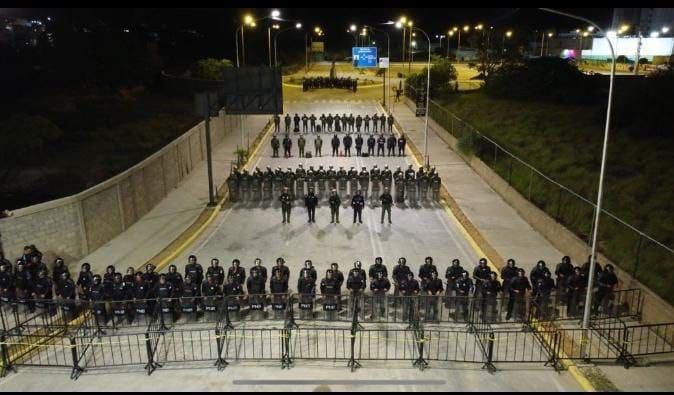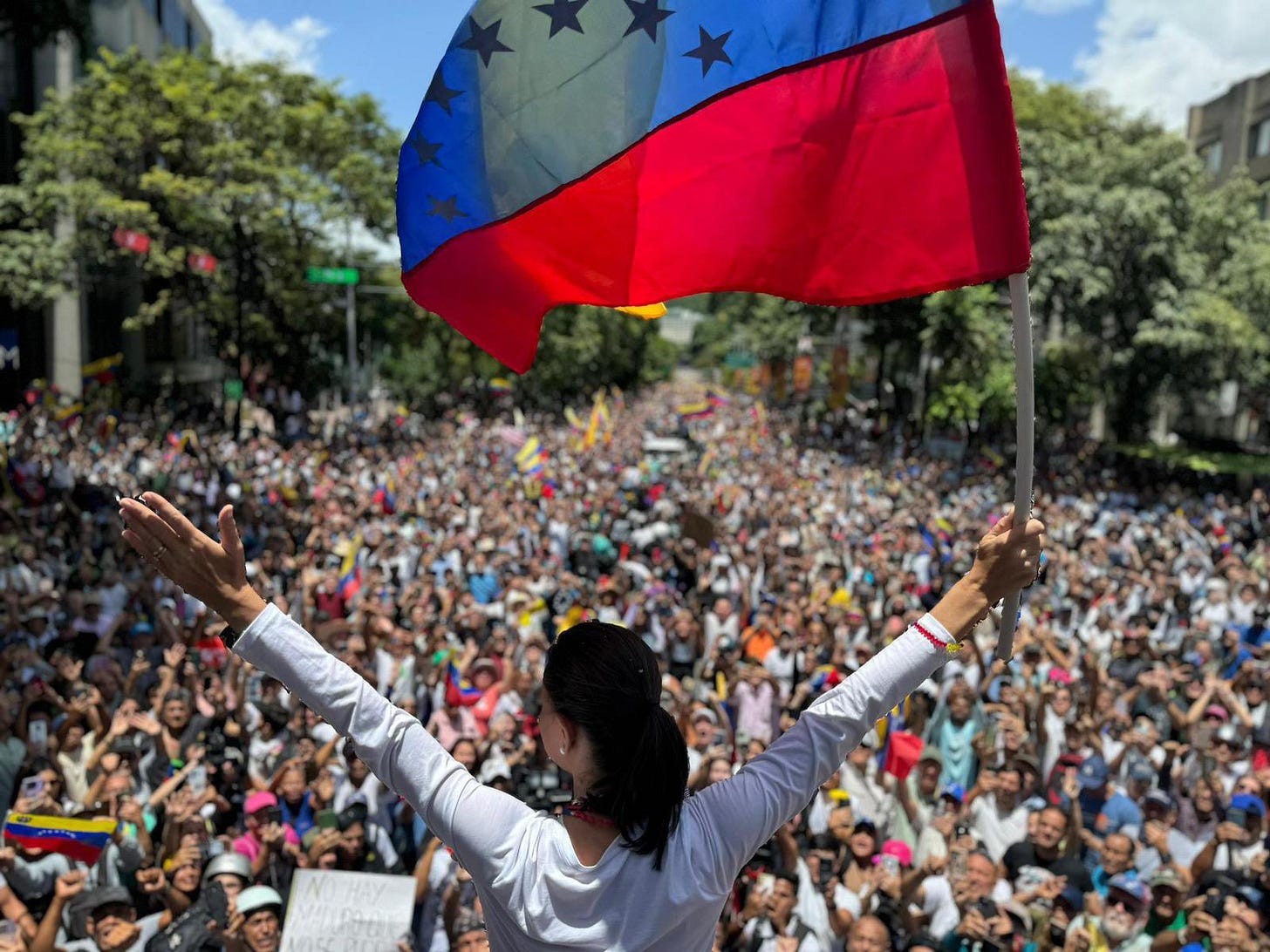Citizenry in fear as Venezuelan police crackdowns intensify
Operation "knock knock", phone searches, intimidation and arbitrary detention of protesters

As National Guard officers review phones at a checkpoint set up in Caracas, a protester who spoke to PWS turned a corner to avoid being caught up in the warrantless searches. “One of my neighbors was arrested for having anti-government messages on their phone,” he said, asking that his name be withheld for safety reasons. “No one can find where he was sent, what he was charged with, or any information about him at all.”
Thousands of Venezuelans have deactivated their social media accounts or gone private after the relaunch of “Operation Tun Tun (knock knock)” by the Venezuelan government, which consists of a webpage, WhatsApp number, and an app that allows users to anonymously report neighbors or acquaintances for “subversive activity” like attending protests, posting anti-government statements on social media, or even criticizing the government verbally.
Security forces then detain suspects at their residences, usually charging them under the country’s “Anti-hate law”, which allows up to 20 years of imprisonment for statements that “incite hatred” against government officials.

The Venezuelan government says it has arrested more than 1000 protesters since Nicolas Maduro declared victory in disputed Presidential elections held on Sunday, July 28. Human rights groups have documented cases of arbitrary detentions, torture, and at least 17 deaths.
Staffers for opposition politicians and human rights activists have also been arrested by security forces. Maduro this week called for the arrest of opposition leader Maria Corina Machado, and presidential candidate Edmundo Gonzalez Urrutia, who claim that the Maduro government committed massive voting fraud
Many of the contacts PWS has been speaking to in Venezuela have deactivated their social media accounts, or gone private, and will only communicate via secure messaging apps.
“We can’t speak on neighbor groups, or Instagram,” said “Ana”, who asked that her real name be withheld. “I’m working with NGOs that report internet outages and collect information on these state programs,” she continued. “I can’t risk getting detained or they will torture me.”
Despite the widespread crackdowns, opposition supporters staged massive protests on Saturday across the country. In Caracas, Machado emerged from hiding to attend a rally with tens of thousands of supporters.
“After 6 days of brutal repression, they thought they were going to shut us up, stop us or frighten us...look at the answer,” she said to supporters.
The Venezuelan government is increasingly coming under pressure from the international community. The Carter Center, which Maduro has praised in the past, released a statement this week saying “Venezuela’s 2024 presidential election did not meet international standards of electoral integrity and cannot be considered democratic.”
Even beyond the fraud allegations, the organization, which has defended Venezuelan elections in the past, criticized “restricted freedoms”, widespread voter suppression, and “a clear bias” by election officials in favor of Maduro.
The United States has recognized Gonzalez as the winner of the election. Leftist leaders in the region from Colombia, Brazil, Mexico, and Chile have called upon Maduro to release voting data and negotiate with opposition leaders.
Maduro, in public statements on Friday, claimed that voting data could not be released due to “a massive hacking effort”, which he claims was organized by Elon Musk, who he challenged to a fight earlier in the week. He provided no proof of the allegations.
In the same speech, he called for the construction of “massive maximum security prisons” to hold “this new generation of protesters.”
Venezuela’s Supreme Court, which is controlled by Maduro’s party, has rubber-stamped Maduro’s claims of victory.
Meanwhile, even in Venezuela’s working-class neighborhoods, which were once bastions of Chavista support, protests against Maduro’s rule have continued.
Ship’s Log
Daniela is trying to organize passage to Caracas to do what PWS does best— provide front-line coverage of events. As the situation continues to escalate, however, some fear a crackdown on international press may be coming soon.
Joshua meanwhile, is freshly returned from a reporting trip to northern Antioquia, where he was reporting on a story about organized crime and mining. It will be out soon, and it is a dramatic one.
This week he published a multimedia story about the Darien Gap with the New Humanitarian. “Drowning, sexual violence, or robbery: Pick your route through the Darién”. As the contested Venezuela election sparks fears of a new exodus, a new US-Panama plan could force migrants into even more dangerous journeys.
You can read it here.
Spanish Word of the Week
A rey muerto, rey puesto- A king dead is a king soon placed
This phrase refers to how quickly power vacuums are filled, or positions filled. If there is a powerful position available, someone will find a way to make sure they achieve it.
In the unlikely event that Maduro is forced from power or steps down in Venezuela, someone will quickly step in to fill that role. Opposition politicians and protesters hope that someone is Gonzales, but it is not unimaginable that one of Maduro’s peers takes power instead. Chavismo has proven that it is nothing if not resilient.




oh damn x_x'
(but also.... we love the very calm, professional response of PWS at the bottom of the screenshot)
Can you give us a hint about the mining story in Northern Antioquia soon to come? ;)